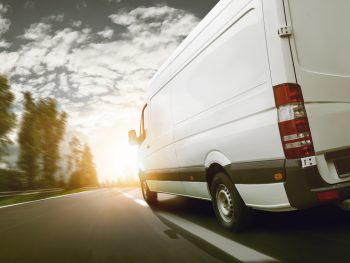Chancellor Jeremy Hunt has replaced the current Super-Deduction tax relief with a new policy of “full expensing” for qualifying equipment and machinery, including fleet vans/trucks.

The new tax break runs until 31 March 2026 and means every pound invested in eligible technology, plant or machinery is fully deductible from taxable profits. Under full expensing, for every pound a company invests, their taxes are cut by up to 25p.
It also enables companies investing in special-rate (including long-life) assets, which don’t qualify for full expensing, to benefit from a 50% first-year allowance over the next three years.
Jeremy Hunt said: “It is a corporation tax cut worth an average of £9bn a year for every year it is in place. And its impact on our economy will be huge. The OBR says it will increase business investment by 3% for every year it is in place.”
While there were no details to show that the new scheme now includes rental and leasing – despite calls from leading trade associations – the Government has now also indicated to the BVRLA that it will work with the industry to develop a policy solution that includes this key vehicle acquisition method for the first time.
The Super-Deduction programme was introduced in the 2021 Budget for a two-year period and allows companies to claim 130% capital allowances on qualifying plant and machinery investments that normally get the 18% main rate writing-down allowances. It also gives a first-year allowance of 50% on most new plant and machinery investments that ordinarily qualify for 6% special-rate writing-down allowances.
Hunt said the decision on a successor “makes us the only major European country with full expensing… and gives us the joint most generous capital allowance regime of any advanced economy” while the Treasury says the new relief will ensure that the UK’s capital allowances regime is world-leading.
The Chancellor added that full expensing is intended to be made permanent “as soon as we can responsibly do so”.
Treasury details for full expensing outline that the plant and machinery must be new and unused, must not be a car, given to the company as a gift, or bought to lease to someone else. Examples of assets that may qualify include vans and warehousing equipment. It also gives details of what happens when a company sells an asset.
Barney Goffer, UK product manager at Teletrac Navman UK, said the new tax break was a welcome arrival.
“While ‘plant and machinery’ needs more definition – for instance, are mobile assets considered machinery – this is an extremely important point for fleets looking to expand, replace fleet, switch from ICE to EV, or digitally transform operations.”
Tanya Sinclair, senior director, public policy – Europe, at ChargePoint, also commented.
“ChargePoint supports the Government’s decision to introduce an immediate alternative to the Super-Deduction in the form of full capital expensing to allow businesses to invest in electric vehicle adoption. This, alongside other initiatives that the Government has put in place, such as the First Year Allowance for EV charging points, all work towards helping the UK reach the ambitious net zero goals.”
She added: “The Government must continue to provide initiatives to support rapidly scaling businesses investing in the UK’s green transition. With the 2030 ICE vehicle ban fast approaching, more government investment in EVs are required in order to hit the target and to continue to be world leaders in the sustainable space.”
Following the Budget announcement, the scheme’s lack of eligibility for rental and leasing firms was seen as a missed opportunity to expand support for fleets.
But the BVRLA says it’s now had a pledge from the Government that it will work with the vehicle rental and leasing sector “to try to deliver a more supportive capital allowances regime that will benefit all fleets”.
The association added: “The leasing and rental sectors have historically been excluded from claiming these powerful investment allowances and passing them onto their customers in the form of lower lease or rental rates.
“In announcing the new allowances, the Government has publicly indicated that it will work with the BVRLA to develop a policy solution that includes this key vehicle acquisition method for the first time.
The BVRLA, in conjunction with other stakeholders, has been invited to engage with HM Treasury to “explore how to overcome long-standing exclusions ahead” of the next fiscal event, which takes place this autumn.
Chief executive Gerry Keaney commented: “Yet again, the Government has acknowledged how critical vehicle rental and leasing is in driving business investment in cleaner commercial vehicles and infrastructure.
“We look forward to working with them in the coming months to develop a powerful capital allowances regime that can drive even faster decarbonisation of road transport.”

